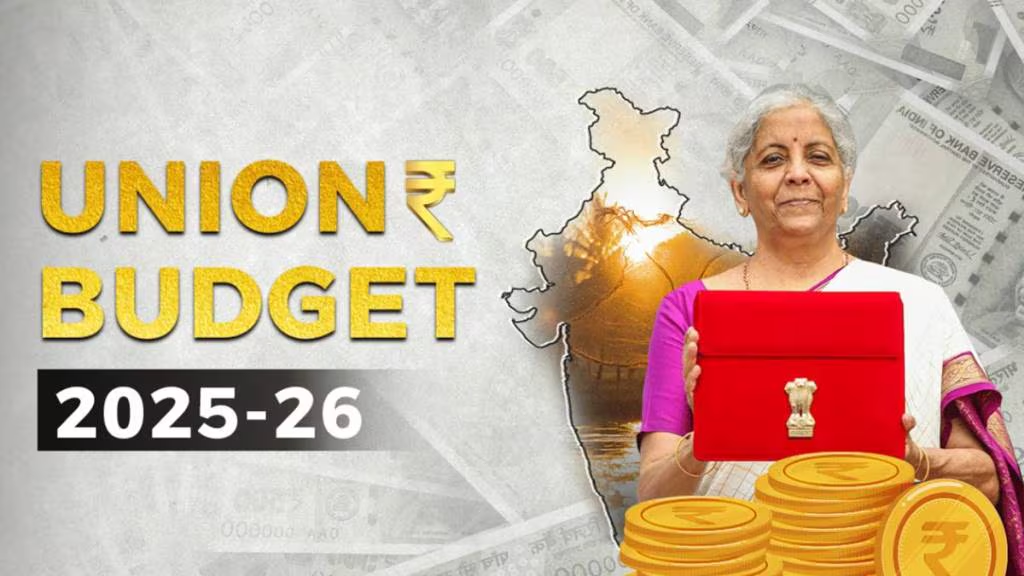The Union Budget 2025, presented by Finance Minister Nirmala Sitharaman, has set the stage for significant transformation in India’s automotive and technology sectors. With a focus on sustainable growth, innovation, and economic resilience, this budget introduces a range of policies and incentives aimed at propelling these industries to new heights. In this article, we delve into the key highlights of the budget, exploring how it will impact the automotive and technology sectors, and what it means for the future of India’s economy.
A Green Revolution in the Automotive Sector
One of the standout features of the Union Budget 2025 is its emphasis on green and sustainable mobility. The government has unveiled a comprehensive roadmap to accelerate the adoption of electric vehicles (EVs) and promote cleaner alternatives to traditional fossil fuels. Here are some of the key measures introduced in the budget:
- Enhanced Incentives for EV Adoption: The government has increased the allocation for the Faster Adoption and Manufacturing of Hybrid and Electric Vehicles (FAME) scheme to ₹15,000 crores. This boost aims to provide greater financial support for the production and purchase of EVs. This will make them more accessible to consumers.
- Reduction in GST for EVs: The Goods and Services Tax (GST) on electric vehicles has been further reduced from 5% to 3%. Consequently, this reduction is expected to make EVs more affordable. It will encourage more consumers to switch to cleaner transportation options.
- Expansion of Charging Infrastructure: To address the concerns of range anxiety, the government has announced plans to set up 10,000 new charging stations across the country. These stations will be strategically located to ensure that EV owners have easy access to charging facilities. Thus, this will promote the widespread adoption of electric vehicles.
- Incentives for Green Hydrogen: Recognizing the potential of green hydrogen as a clean fuel, the budget includes incentives for the production and use of green hydrogen in the automotive sector. Therefore, this move aims to diversify the energy mix and reduce the carbon footprint of the transportation industry.
- Scrappage Policy: The budget introduces a new vehicle scrappage policy that provides incentives for the voluntary scrapping of old, polluting vehicles. Owners of vehicles older than 15 years will receive financial incentives to trade in their old vehicles for newer, more efficient models. As a result, this will reduce pollution and stimulate demand for new vehicles.
Boosting Innovation in the Technology Sector
The Union Budget 2025 also places a strong emphasis on fostering innovation and technological advancement. The government has announced several initiatives to support the growth of the technology sector, positioning India as a global leader in digital innovation. Key highlights include:
- Increased Funding for R&D: The budget allocates ₹50,000 crores for research and development (R&D) in emerging technologies such as artificial intelligence (AI), machine learning (ML), quantum computing, and blockchain. Moreover, this funding aims to drive cutting-edge research and position India at the forefront of technological innovation.
- Startup India 2.0: Building on the success of the Startup India initiative, the government has launched Startup India 2.0. This includes enhanced tax incentives, easier access to credit, and streamlined regulatory processes for startups. Thus, this initiative aims to create a conducive environment for startups to thrive and contribute to the economy.
- Digital India Push: The budget continues to support the Digital India mission, with increased investment in digital infrastructure. This includes the expansion of high-speed internet connectivity to rural and remote areas. Consequently, this move aims to bridge the digital divide and ensure that all citizens have access to digital services and opportunities.
- Skill Development and Training: Recognizing the need for a skilled workforce to drive technological innovation, the government has announced the establishment of new Centers of Excellence for skill development in emerging technologies. These centers will provide specialized training and upskilling programs. Therefore, this will equip the workforce with the necessary skills to succeed in the tech-driven economy.
- Cybersecurity Initiatives: With the increasing reliance on digital platforms, cybersecurity has become a critical concern. The budget includes measures to strengthen cybersecurity infrastructure. In addition, this will enhance the capabilities of cybersecurity agencies to protect against cyber threats and ensure the safety of digital transactions.
Impact on the Automotive Sector
The policies and incentives introduced in the Union Budget 2025 are expected to have a significant impact on the automotive sector, driving growth and innovation. Here are some of the key implications:
- Accelerated EV Adoption: The enhanced incentives for EVs, coupled with the expansion of charging infrastructure, are expected to accelerate the adoption of electric vehicles. This shift towards greener transportation options will reduce the carbon footprint of the automotive sector and contribute to a cleaner environment.
- Increased Demand for New Vehicles: The vehicle scrappage policy is expected to stimulate demand for new vehicles as owners trade in their old, polluting vehicles for newer models. Consequently, this increase in demand will benefit automakers and provide a boost to the automotive industry.
- Growth of the EV Manufacturing Ecosystem: The increased allocation for the FAME scheme and incentives for green hydrogen will support the growth of the EV manufacturing ecosystem. This includes the production of EV components, batteries, and charging infrastructure. In addition, this will create new job opportunities and drive economic growth.
- Technological Advancements: The emphasis on R&D and innovation will drive technological advancements in the automotive sector. This will lead to the development of more efficient, connected, and autonomous vehicles. Thus, this will enhance the competitiveness of Indian automakers in the global market.
Impact on the Technology Sector
The initiatives announced in the Union Budget 2025 are poised to have a transformative impact on the technology sector, fostering innovation and positioning India as a global tech leader. Key implications include:
- Increased R&D Investment: The increased funding for R&D in emerging technologies will drive innovation. This will lead to the development of cutting-edge solutions. Consequently, this will enhance India’s technological capabilities and position the country as a hub for technological innovation.
- Thriving Startup Ecosystem: The launch of Startup India 2.0 will create a more supportive environment for startups. This will encourage entrepreneurship and innovation. Moreover, the enhanced tax incentives, easier access to credit, and streamlined regulatory processes will help startups grow and succeed. Thus, this will contribute to economic growth and job creation.
- Digital Inclusion: The continued investment in digital infrastructure will ensure that all citizens have access to digital services and opportunities. Consequently, this will bridge the digital divide. This digital inclusion will empower individuals and businesses. Therefore, this will drive economic growth and social progress.
- Skilled Workforce: The establishment of Centers of Excellence for skill development in emerging technologies will equip the workforce with the necessary skills to succeed in the tech-driven economy. This will enhance the employability of individuals. Consequently, this will ensure that India has a skilled workforce to drive technological innovation.
- Enhanced Cybersecurity: The measures to strengthen cybersecurity infrastructure will protect against cyber threats. Moreover, this will ensure the safety of digital transactions. Consequently, this will build trust in digital platforms and support the growth of the digital economy.
Conclusion
The Union Budget 2025 marks a significant milestone in India’s journey towards sustainable growth and technological innovation. The comprehensive policies and incentives introduced in the budget are poised to catalyze growth in the automotive and technology sectors. This will drive economic resilience and position India as a global leader in these industries. As the country embraces green mobility and technological advancements, the Union Budget 2025 sets the stage for a brighter and more prosperous future for all.







Leave a Reply